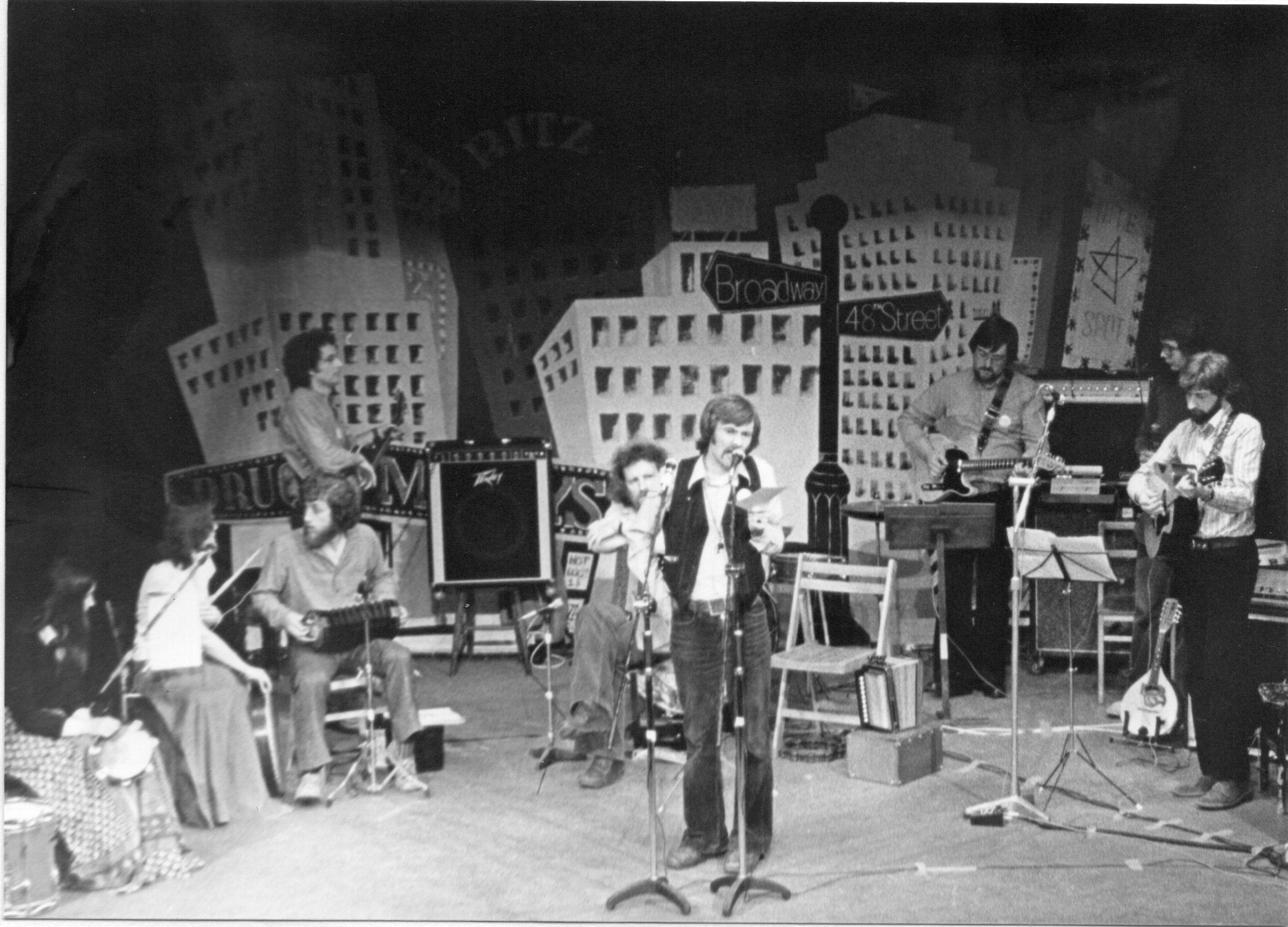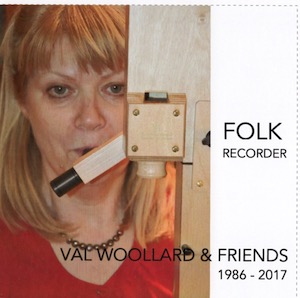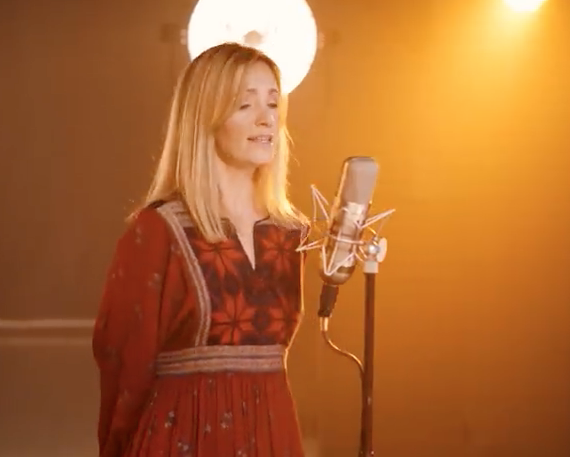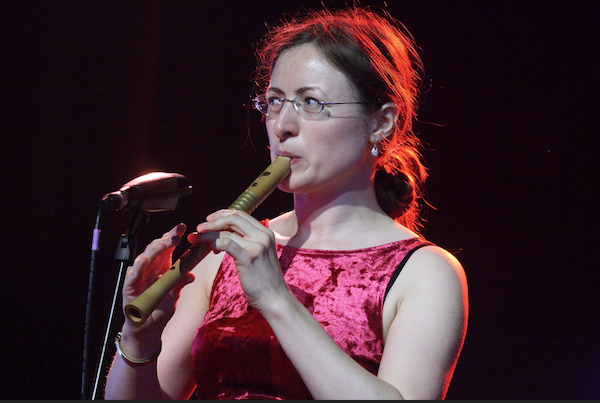TONY HALL interview from LIVING TRADITION
This interview I did with Tony Hall appears in the current issue of Living Tradition magazine. It's a timely reminder, I'd say of Tony's various creative talents.
Simon Haines

This interview I did with Tony Hall appears in the current issue of Living Tradition magazine. It's a timely reminder, I'd say of Tony's various creative talents.
Simon Haines

Simon Haines
In 1979, quite out of the blue, I was asked to join a group of musicians who were working on a folk show. The group was called Poor Man’s Burden and the show was Captain Swing; I was asked to play melodeon as well as read the speeches of William Cobbett.
I joined after the group had had a break from rehearsals, so the music was already arranged. I couldn’t believe my luck. It was a time when I was into folk rock and was a massive fan of the Albion Band. For me, Poor Man’s Burden was like an Albion tribute band.
The group organiser and leader was Phil Manchester, a melodeon / fiddle player who conceived the idea of Captain Swing, wrote all the songs and researched the subject matter.
After the performances, Poor Man’s Burden morphed into The Hooligan Ceilidh Band which turned in Bass Instincts and eventually The Hosepipe Band.
You can listen to the whole show below, but there is a CD available. If you'd like one, email me at This email address is being protected from spambots. You need JavaScript enabled to view it.
 Following interest in the recorder as a folk instrument from two articles on this website, Val Woollard has put together a compilation of tracks on which she has played her various recorders. The first is on the 1986 Bass Instincts album Strippers's Waltz, the last is on the 2017 Rosewood album Rife & Strife & Mirth & Fun.
Following interest in the recorder as a folk instrument from two articles on this website, Val Woollard has put together a compilation of tracks on which she has played her various recorders. The first is on the 1986 Bass Instincts album Strippers's Waltz, the last is on the 2017 Rosewood album Rife & Strife & Mirth & Fun.
For any further information about the tunes on this recording or her recorder playing, you can contact Val at This email address is being protected from spambots. You need JavaScript enabled to view it.
You can listen to all the tracks on this recording by clicking the sound file under each track title, but if you'd like a physical CD version of the recording for £5.00 (*P&P incl.), contact Val as above.
For a review of this recording by Dawn Wakefield CLICK HERE
by Simon Haines
 I have followed the fortunes of the Derry singer Cara Dillon for about 30 years, in fact since I first saw her as a teenager in the group Oige, at Colchester Arts Centre. Her voice and her treatment of songs was mesmerizing and I became an instant fan. Cara appeared next in The Equation, a pop-folk band, where she replaced Kate Rusby who had left to start her solo career. The other members of the Equation were Kathryn Roberts and the Lakeman brothers: Sam, Sean and Seth.
I have followed the fortunes of the Derry singer Cara Dillon for about 30 years, in fact since I first saw her as a teenager in the group Oige, at Colchester Arts Centre. Her voice and her treatment of songs was mesmerizing and I became an instant fan. Cara appeared next in The Equation, a pop-folk band, where she replaced Kate Rusby who had left to start her solo career. The other members of the Equation were Kathryn Roberts and the Lakeman brothers: Sam, Sean and Seth.
Fast forward a few years and Cara Dillon and Sam Lakeman formed a duo. Rumour has it that the recordings they made for Warner Brothers were never released, so they walked away and started an independent musical life. Eventually Cara Dillon released a solo album and has since gone on from strength to strength to become an internationally acclaimed singer of traditional Irish songs. She has performed her repertoire in a duo with Sam Lakeman but also with other formations of traditional musicians. She has appeared regularly on TV in Transatlantic Sessions.
Article by Dawn Wakefield with contributions from Finn Collinson
 Emily AskewThis article was originally written for the Recorder Magazine which is distributed nationally to members of the Society of Recorder Players (SRP) and also members of The European Recorder Teachers Association (ERTA). As a member of ERTA, I wrote this as an invitation to teachers and students to explore more folk music. Adapting it slightly for Mardles, I realise you are already fans of folk music, but you may need some encouraging to appreciate the recorder! It often has a bad press because of people’s memories of beginner primary school classes on mass descant recorders, often with inexperienced teachers. However do read on as there is much more to the recorder than that! For a start there are different sizes and shapes of recorder: sopranino, descant, treble, tenor and bass, all with their individual beautiful sound qualities and in experienced hands they do sound good. Although this article focuses a lot on printed material, learning tunes by ear is more traditional and is still very much an option, one that was not always made clear in school muisc lessons in the past. Personally though, I find the ability to read music opens up such a wide range of material that I can learn independently, so I would recommend it as a skill, but others I know work more easily by ear. The main thing is to enjoy music and play whatever attracts you.
Emily AskewThis article was originally written for the Recorder Magazine which is distributed nationally to members of the Society of Recorder Players (SRP) and also members of The European Recorder Teachers Association (ERTA). As a member of ERTA, I wrote this as an invitation to teachers and students to explore more folk music. Adapting it slightly for Mardles, I realise you are already fans of folk music, but you may need some encouraging to appreciate the recorder! It often has a bad press because of people’s memories of beginner primary school classes on mass descant recorders, often with inexperienced teachers. However do read on as there is much more to the recorder than that! For a start there are different sizes and shapes of recorder: sopranino, descant, treble, tenor and bass, all with their individual beautiful sound qualities and in experienced hands they do sound good. Although this article focuses a lot on printed material, learning tunes by ear is more traditional and is still very much an option, one that was not always made clear in school muisc lessons in the past. Personally though, I find the ability to read music opens up such a wide range of material that I can learn independently, so I would recommend it as a skill, but others I know work more easily by ear. The main thing is to enjoy music and play whatever attracts you.
Whether you are learning ‘just for fun’ or looking for plenty of varied good tunes in between grade exams, folk music both from the British Isles and further afield provides a rich and rewarding source of varied music. I personally have been both a ‘classical’ and a folk player for many years. I run a monthly folk session in a local pub here in North Norfolk and attend others in the area; I have many happy memories of playing for dance while fronting a ceilidh band on descant recorder, and also playing with various informal groups for Balkan folk dancing.